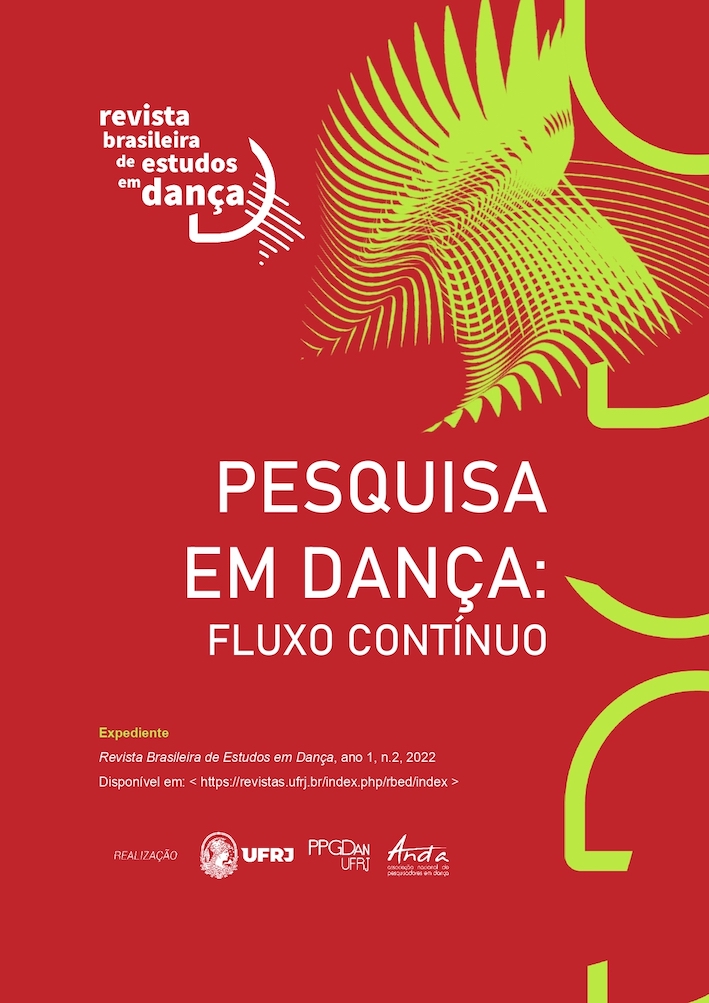Teaching and learning popular dances:
Historical, curricular,and methodo-logicalperspectives
DOI:
https://doi.org/10.58786/rbed.2022.v2.n2.55127Keywords:
CURRÍCULO. DANÇAS POPULARES. ENSINO.Abstract
The study focuses on making a historical review of the epistemological conceptions present in teaching, from basic education curricula to higher education. The hypothesis considered is that of the continuous presence of Eurocentric content that has permeated education in the country since previous centuries, placing the knowledge of the peo-ple, of our land, as supporting or even silenced in the curricula. The theoretical contribution is based on the educational propositions of Freire (2014), on the considerations about the curriculum systematized by Silva (2019) and Castro-Gomez (2007) and historically resumed by Carvalho (2019). The problematizations are anchored in the reflections of Kilomba (2019) and dialogue with the practical ways of teaching popular dance, developed by Ligiéro (2011), among other authors that strengthen the discourse shared here. As a result, we bring a possibility of theoretical-practical work to teaching popular dances, repeating Ligiéro's triad and adding contextualization asan-other vertex to be inserted as a methodological principle
Downloads
Published
Versions
- 2023-11-30 (2)
- 2022-12-30 (1)
How to Cite
Issue
Section
License
Authors who publish in the Revista Brasileira de Estudos em Dança are
responsible for the content of signed articles and retain copyright.
They grant the journal the right of first publication with the work simultaneously
licensed under the Creative Commons Attribution-NonCommercial 4.0 License
(Open Archives Initiative - OAI). This feature, used for open-access journals,
allows sharing work for non-commercial purposes and acknowledges
authorship. If the text is later published in another vehicle, the author
must inform that it was initially published as an article in the Revista Brasileira
de Estudos em Dança. Therefore, even if the journal owns the first publication,
authors are entitled to publish their work in institutional repositories or on
their personal pages, even if the editorial process has not been completed.
The journal reserves the right to make normative, orthographic, and grammatical changes to maintain the language standard, respecting the authorial style.

